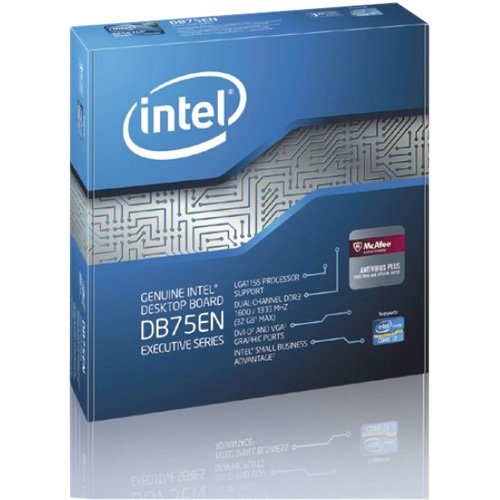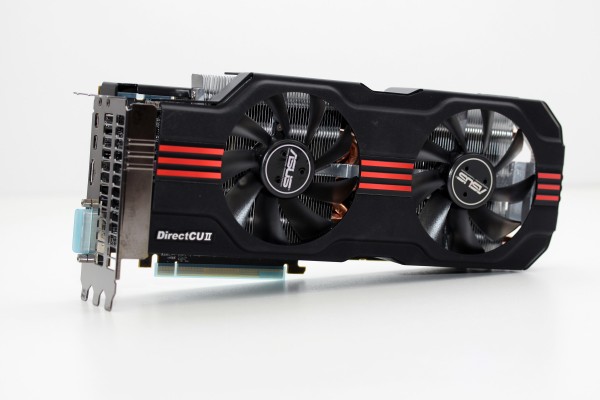Midrange System Buyer's Guide
by Zach Throckmorton on September 11, 2012 12:35 AM EST- Posted in
- Guides
- AMD
- Intel
- Ivy Bridge
- Radeon HD 7000
- NVIDIA
Developments in the Midrange Market
As with the budget segment of the DIY computer market, the midrange segment has seen many exciting new developments since the start of 2012. Perhaps the most noteworthy change is that Intel CPUs are now entirely dominant in systems that will set you back about $1,000. Ivy Bridge-based chips are now available at every price point from $100 up, leaving only the pure budget category untouched (at least until we see the Celeron IVB part). If you're interested in more information, we have a lot of information available on Ivy Bridge.
As with the latest CPUs, the newer B75 chipset has brought out of the box Ivy Bridge CPU support to less expensive motherboards, filling out the Panther Point platform. Ian thoroughly covered the Z77 chipset and compared it with H77. The B75 chipset is similar to Z77 and H77 with a few important differences for midrange buyers: two fewer USB 2.0 ports (eight vs. ten), one less SATA III port (one vs. two), and support for neither Intel RST (firmware RAID) nor SRT (SSD caching). PCIe 3.0 and 2.0 configurations are the same on B75 as they are on H77. The important point is that B75 enables less expensive motherboards that lack features that might not be important to midrange system builders, allowing money to spent on faster CPUs, GPUs, better SSDs, etc.

That said, AMD's impending launch of its Trinity APUs might very well put AMD back into the midrange market. AnandTech will be covering Trinity chips in more depth as the new APUs start hitting the mainstream desktop market over the next few months. While the parts are already shipping in OEM desktops, retail availability of the APUs has not yet occurred. For now, you can read more our current Trinity coverage.
As is often the case, the GPU market remains dynamic, with both AMD and NVIDIA wrestling for your money at multiple price points by introducing new cards and lowering prices on existing cards. We'll discuss the GPU market in more depth on the gaming rigs page.
Another development of note for midrange buyers is that prices on many of the best SSDs have been cut in half (or more!) compared to late 2011. This means that respectably-sized (i.e. 120/128GB and above) SSDs that perform very well and have great reputations for reliability are now comfortably within reach of even the lower end of the midrange budget. High capacity SSDs (i.e. those around 250GB) are also within midrange budgets; for many purposes, this means you can eschew a mechanical hard drive entirely—and either spend that money on better CPUs, GPUs, or just keep it in your wallet. Fortunately for consumers, prices on mechanical hard drives are declining in the wake of the Thailand floods, so the wallets of those with more demanding storage needs won't be hurting quite as badly as they were earlier in 2012.
Finally, case manufacturers have released many compelling choices for midrange system builders. Over the next few pages, we'll highlight new enclosures from Fractal Design, Corsair, Lian Li, NZXT, and others.
With that out of the way, let's get to the builds! We'll start with gaming machines on the next page.











95 Comments
View All Comments
cknobman - Tuesday, September 11, 2012 - link
AsRock junk?????I have built several system with BioStar motherboards and several with AsRock.
I would rank AsRock as a great upper middle tier motherboard and BioStar as a great cheapo motherboard (just above ECS).
BioStar motherboards wont overclock nearly as well as AsRock and their BIOS/UFI interfaces suck.
StevoLincolnite - Tuesday, September 11, 2012 - link
Asrock are Fantastic for budget motherboards, even the higher end gear has picked up over the past few years and provide great value.Still got an Asrock A780GMH motherboard in the old farts machine that's been kicking fine for the last several years with a Radeon 3200 IGP overclocked to 1.2ghz, it did have an Athlon X2 7750 but dropped in my Phenom 2 x6 1090T when I upgraded to a Core i7 3930K, best $50 motherboard ever.
redchar - Tuesday, September 11, 2012 - link
Asrock is neither a division of asus nor a pile of junk, being on par with asus and gigabyte, but for a lower price than asus. due to the price of good asus boards it often is silly to buy one over gigabyte and asrock competition.Pessimism - Tuesday, September 11, 2012 - link
Wrong.ASRock, a spinoff of ASUS, is owned by Pegatron. Pegatron, is one of three divisions of the company we know as "Asus", which handles motherboard and OEM manufacturing. Ergo, ASRock, is a division of Asus.
http://en.wikipedia.org/wiki/ASRock
"ASRock was originally spun off from Asus in 2002 in order to compete with companies like Foxconn for the commodity OEM market."
"It was founded in 2002 and is currently owned by Pegatron Corporation"
http://en.wikipedia.org/wiki/Asus
In January 2007, Asus started restructuring its operations.[10] The company split into three distinct operational units: Asus, Pegatron and the Unihan Corporation.[11] The Asus brand was applied solely to first-party branded computers. Pegatron handled OEM manufacturing of motherboards and components, and the Unihan Corporation focused on non-PC manufacturing such as cases and molding
As far as them being junk or not junk, you are entitled to your opinion.
C'DaleRider - Tuesday, September 11, 2012 - link
Guess you didn't bother to read further on that Wiki page about Pegatron:In January 2010, Pegatron's then parent company Asustek announced a plan to spin off and to transfer its long term equity investment in Pegatron to its wholly owned subsidiary, Pegatron International Investment Co., Ltd. On June 10, 2010, Pegatron merged with Pegatron International, and Pegatron has since been the surviving spin off independent company.
Note the words "independent", "spin off", and "transfer its equity", all of which denote Pegatron as an independent company that was spun off from Asustek a few years ago.
AsRock, a spin off company of Asustek, is an independent company. Owned by Pegatron notwithstanding, AsRock acts like and is an independent company separate from Asustek, and is listed as a separate company on Taiwan's stock exchange.
True, AsRock was once a unit of Asustek, but has not been for years. But, interestingly, AsRock shares much of its development with Asustek, easily seen in AsRock's motherboard EUFI BIOS setup, which is almost identical to Asustek's EUFI BIOS setup.
RamarC - Tuesday, September 11, 2012 - link
asrock isn't junk but it started out as ASUS' lower-end/budget product line... much like Cadillac and Chevy.from wp: ASRock was originally spun off from Asus in 2002 in order to compete with companies like Foxconn for the commodity OEM market.
in the past few years, ASRock expanded from the budget space and started aiming higher with more features and robustness. now they really are comparable to MSI and can (almost) trade blows with ASUS and GB.
http://en.wikipedia.org/wiki/ASRock
RamarC - Tuesday, September 11, 2012 - link
sorry,,, i posted before i saw the other reply whose points i basically parotted. 'nuff said.RussianSensation - Tuesday, September 11, 2012 - link
Asrock is a stand-alone company and have been making very good motherboards for years now. Time to snap out of the early 2000s.Stuka87 - Tuesday, September 11, 2012 - link
I disagree completely. I have had extremely good experiences with MSI products going back 12 years now. To say MSi is low end, or to even compare them to Jetway is laughable. I would rank MSI's video cards to be above that of ASUS, and the motherboards to be just as good.My current MSI board has a great power distribution setup and has no issues powering my very power hungry CPU. And all the cap are of decent quality (They are not all Japanese, but only super high end Mobo's are).
I think you need to get experience with more brands before you start talking about them.
bitoolean - Wednesday, September 12, 2012 - link
I wouldn't recommend buying Biostar or MSI either, because of my little but disappointing experience with them.A friend bought a cheap BioStar only to learn it doesn't have any audio internal connectors, which means he has to buy an audio board to get any sound from his TV-card... So now he can't use the TV-card because the company decided to make too many budget cuts.
I've had problems with MSI's website at another buddy - I couldn't find his board (it's only 5 years old) listed at all to get the drivers for it - I only could download the drivers for a very similar motherboard on their website (I think I finally went for the chipset manufacturer's website). At another time, at another buddy, their site didn't even work at all in any browser, and it's not very well organised either anyway.
I had an ASUS motherboard for a few years. It was very stable, although in the past I've seen people say they got hot with time and some had some problems.
Gigabyte motherboards have attractive features indeed (ultra-durable capacitors for example), but while working at a PC store/workshop, one of the new motherboards we received from them (which was to be included in a build we would sell) wouldn't power on, and I don't think it had been tampered with or improperly transported.
I've heard that Asrock use components that ASUS wouldn't as well, but I'm impressed by their motherboards' features and their price tags, and I haven't heard anyone having problems with them in time on forums. Their website rocks too...
I believe that if a company doesn't invest in their website, they don't care about how they look, and they don't care about their clients, so I think that's an important aspect to criticize if you want criteria. Appearance says a lot. And ECS has a terrible website.
So I wouldn't buy any Asrock, ASUS or Gigabyte motherboard confidently, but they may be the best choices in my opinion (and also many other forum users' using them).